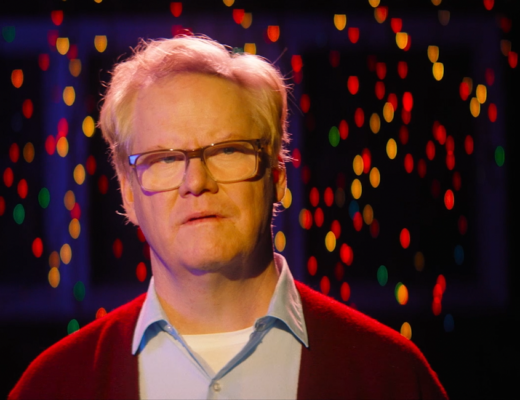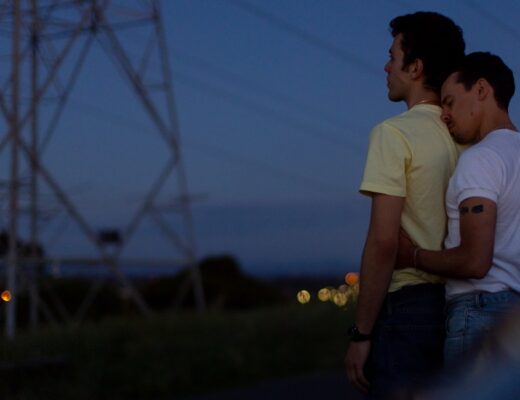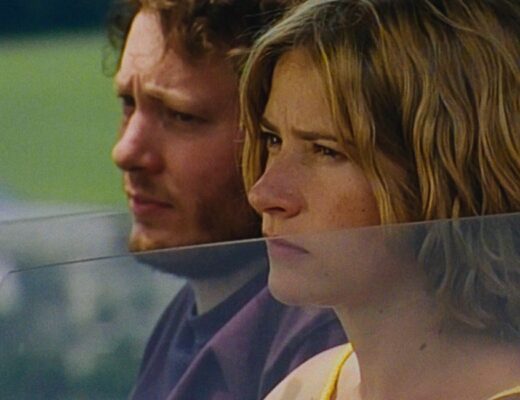Wolfwalkers doesn’t do much to upset its fable template but thrives on the strength of its complex and gorgeous animation.
The final film in Tomm Moore and Ross Stewart’s informal Irish folklore trilogy (following The Secret of Kells and Song of the Sea), Wolfwalkers is also arguably their most gorgeous effort to date. Set during Oliver Cromwell’s barbarous colonization of Ireland (obvious subject matter for a kids’ film), Wolfwalkers establishes its primary conflict through a narrative dripping in Lycan lore and the tension that results when it comes into contact with the kind of crazed mania that captures small-minded communities across any number of fairy tales (certain images here easily recall Beauty and the Beast’s flambeau-and-pitchfork climax). A young girl, Robyn, accompanies her father from England to the small town of Kilkenny in order to eradicate the wolves that pester the village from the forest fringe, but the warring factions aren’t as easily separated as superstition would lead her to believe.
Much has previously been made of the spiritual and aesthetic similarities that Moore and Stewart’s films share with Studio Ghibli’s repertoire, and while their latest retains the familiar mythological underpinnings, deep reverence for the natural world, and goggle-eyed characters, their animation here is as singular as it’s ever been. The profile-heavy 2D animation of Wolfwalkers easily outshines the soulless, dime-a-dozen polish of typical twenty-first-century studio efforts; the linework specifically, featuring imprecise sketching and soft shading, lends the film a welcome handcrafted intimacy. The minimalist human renderings are accentuated by detail-oriented, usually static backgrounds (the knotted trees and dark, swirling navy skies of the forest prove most impressive), a juxtaposition that allows scenes to play out with deceptive compositional complexity. And in one standout sequence, a wall torch becomes a marvel of retro animation, geometric blocks of red and white shifting slightly, in almost 8-bit fashion, to create a flickering effect. Elsewhere, the film’s plentiful wolves are more reminiscent of Golden Age Disney animation than of Miyazaki, their exaggerated, angular proportions and goofy mugs infusing the film with yet another layer of comforting, yesteryear familiarity. If the film’s moral and narrative arcs remain less striking and predictably feckless, it’s largely part and parcel with children’s cinema’s inclination toward moral fable. That Wolfwalkers sometimes frustrates in its refusal to shed its limiting apologue texture is a testament to its reliable transcendence elsewhere.
You can catch Tomm Moore and Ross Stewart’s Wolfwalkers in theaters today or streaming on Apple TV+ beginning on December 11.
Originally published as part of TIFF 2020 — Dispatch 5.







